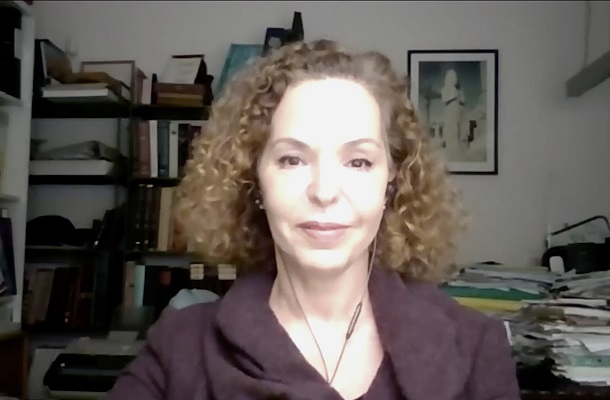Resilience – To be or not to be

This is an edited summary of Ms Shirin Herzog’s keynote address presented at the ‘A Vision for Australia 2020’: GAP Virtual Summit on National Resilience.’
Shirin Herzog offered Israel as the epitome of international resilience, as a small nation surrounded by potential threats. Its population of 9 million is similar to NSW, but, as then Israeli Prime Minister Golda Mayer told current US President Elect Joe Biden in 1973, its population has nowhere else to go. Much of the country is dry desert with no natural resources, but the challenges it faces draw Israelis together and are a source of resilience.
An Israeli-born citizen is called a sabra, from a Hebrew word for the prickly pear cactus, which has a soft, sweet centre despite its prickly exterior. Necessity is the mother of all inventions, and so Israelis have invented novel ways to ensure water security, a resource whose importance the recent drought made clear in Australia.
Israel recycles water for agriculture, desalinates water, uses drip irrigation to reduce waste and sells this technology to 120 other countries – even those who deny it diplomatic relations – as the effects of climate change intensify.
Innovation is a critical part of resilience, and Israel prides itself as the ‘start-up nation’, thanks in part to the efforts of its national innovation agency, the Israel Innovation Authority. This body encourages Israeli firms to increase their investment in research and development.
The Israel Innovation Authority’s main program offers research grants which are repaid with royalties from the commercial products they generate, while other schemes encourage efforts by women and minorities. It is currently fighting the coronavirus pandemic through fast-track incentives for small firms and near-production products.
Another program encourages Israeli institutional investors to fund young Israeli high-tech companies. Such investors tend to be conservative and shy from early-stage tech investments, missing out on high growth opportunities as a result. Although relatively new, the scheme is so far exceeding expectations. The non-political nature of the Israel Innovation Authority is a factor in its success.
Israel’s National Security Council was given authority to deal with the COVID-19 crisis, but its expertise in security and defence did not extend to health or economic problems.
While the Israel Defense Forces provided food and organised hotels for quarantined people, and used its elite technology units to create sophisticated monitoring systems, overall leadership in the COVID-19 crisis was tainted by political interests, and differential treatment for various sectors created social divides.
Israel’s handling of climate change is another issue. While a long-term strategy to cope with its effects was approved by the government in 2018, experts warn that more action is required, as large swathes of the planet including in the Middle East will be uninhabitable within 50 to 70 years.
The resultant mass migration of affected people could pose a grave threat to Israel, which has already seen how a million refugees internally displaced in Syria due to drought, were one of the causes of the Syrian war.
Unfortunately, the Israeli government is yet to commit an adequate budget and take concrete actions to achieve its climate-change related goals. Solar energy and storage are examples relevant to sunny nations such as Australia and Israel, but broader leadership on these issues is required.
Politicians must look beyond immediate political wins to plan for long-term national security in the face of growing threats and problems. International cooperation will be required to build resilience on a global scale.
The full report from the ‘A Vision for Australia 2020’: GAP Virtual Summit on National Resilience’ is available here.
Open Forum is a policy discussion website produced by Global Access Partners – Australia’s Institute for Active Policy. We welcome contributions and invite you to submit a blog to the editor and follow us on Twitter, Facebook, Linkedin and Mastadon.














